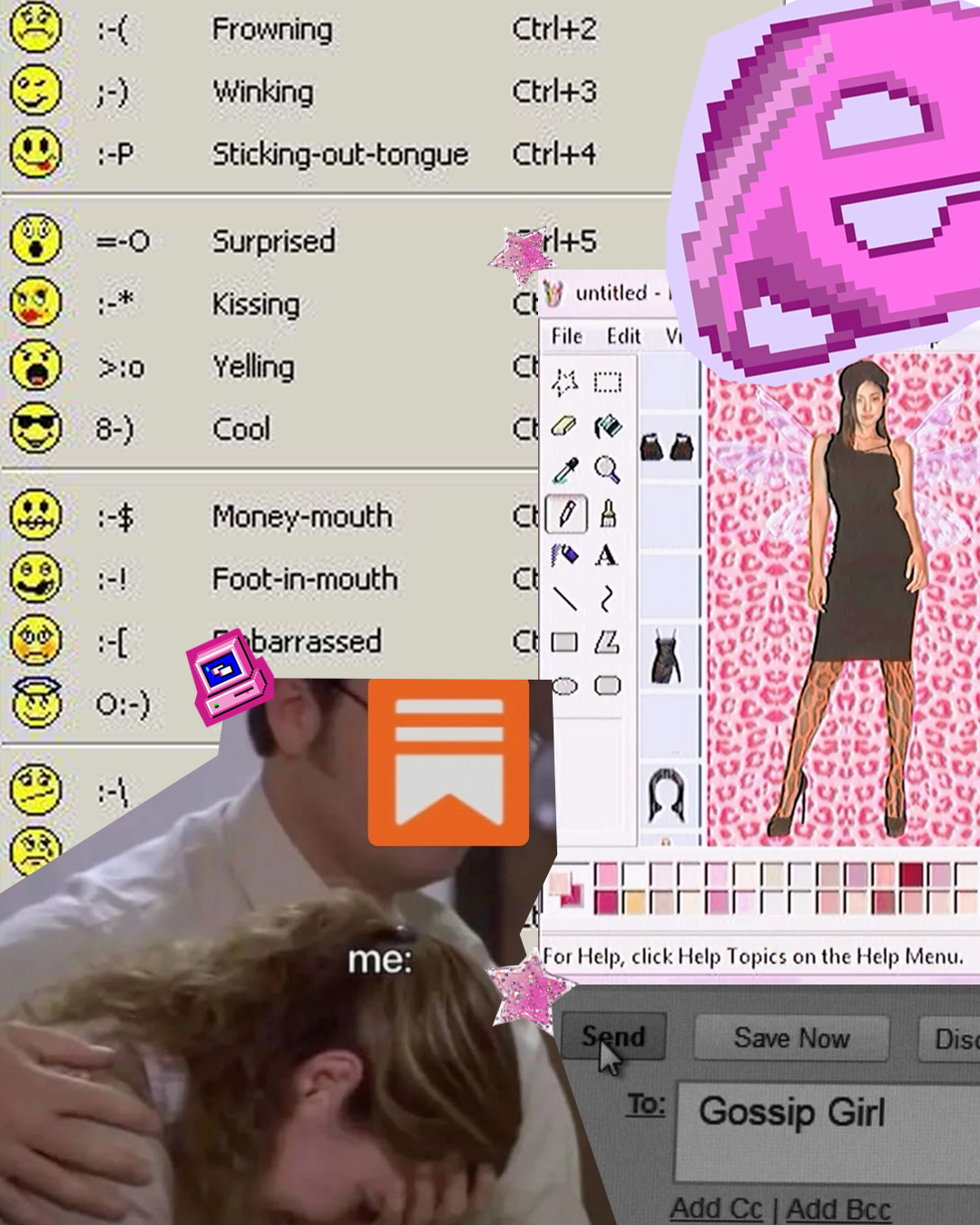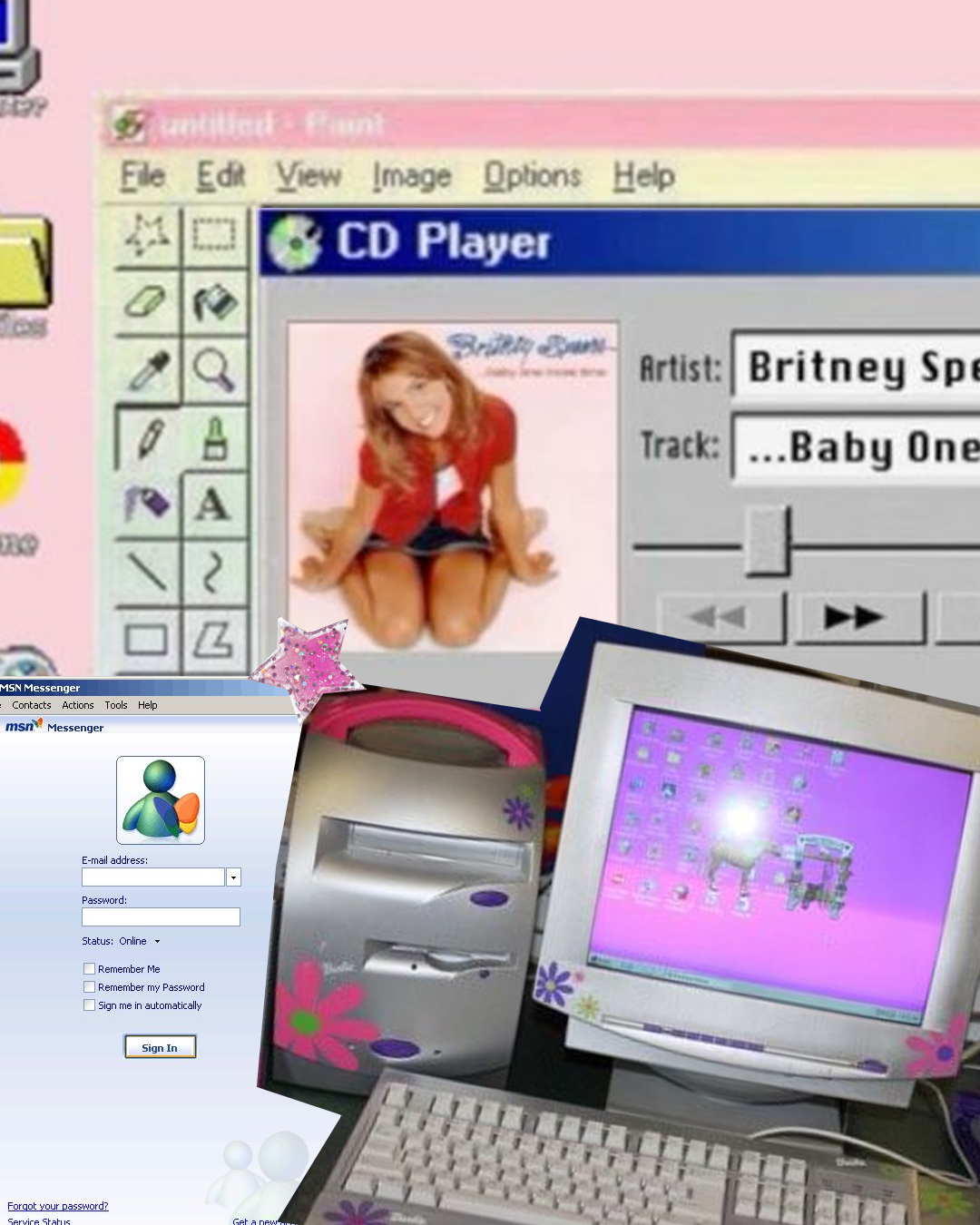From Echo Chamber to Individualism: Why Social Platforms No Longer Serve Us
Words: Beauty Dhlamini
Make it stand out
If, like me, you grew up as a teenager during the late noughties, you entered the online world through MSN. Before I even conceived of the many versions of myself I would create online in the future, I would spend my hours of allotted screen time on our clunky family computer to speak to my friends using the instant messaging service.
Mulling over the evolution of social media apps with my friend Nas, we both awkwardly laughed our way through our recounting the different social platforms that have consumed our time, since we were pre-teens. Following the popularity of MSN, early dominance of social media platforms was held by Bebo (2005-2014), Piczo (2003-2012) and then MySpace (2003-2011). Slowly but surely, it became the norm to speak to, share the world and even develop friendships with strangers online.
Nas and I both agreed the real introduction to the social media world was Facebook during secondary school. Despite my reluctance to expose myself to perception and my interests on the internet, I was confident in who I was and what I was interested in. This was reflected in my ‘likes’ – the shows I had obsessed over with my friends and the community I built.
As a teenager, however, I wanted more, and became one of the first people in my year 9 class who used Twitter (now known as X). Of course I instantly became hooked and as a result, I was able to explore my identity. On reflection, this was largely influenced by the big names on Twitter, what they dictated was in, and what was out. At the time, many people aspired to be Facebook, Instagram or Twitter ‘famous’. I was desperate to fit in with all the thin alternative indie girls; tailoring my aesthetics, the way I always typed lowercase and exhibiting my indie band knowledge at every chance I had in my tweets (with all the bands I liked listed in my bio).
___STEADY_PAYWALL___
Despite still being impressionable, I feel less ashamed about how I used Twitter as an older teenager when my online world shifted closer to reflecting my IRL identity and community by embracing Black Twitter. A few select Twitter personalities spring to mind in memory that moulded Black Twitter; JamzLDN and FLOTUK not only helped my identity consolidation, but were part of the few who created a space where I met some of my best friends there.
While this was great, early remnants of today's internet shortfalls were exposed on the ugliest sides of Black Twitter. With black women almost always the butt of the joke, trolling, misogyny, colourism and bullying, accountability in an ugly, messy and self-righteous way, especially during Sunday Corn (every Sunday, it seems by coincidence someone was made a target to and was the subject of intense mockery, ridicule and gossip by default, every user part of Black Twitter), was rife. It was ruthless and it was not for the weak.
“It forced all of us to make brands of ourselves, erasing the mystery and monopoly that only a few big influencers previously held. All of us assumed the potential to be microinfluencers. Overnight, everyone became a main character on the internet. “
It seems however, as we got bored with one platform, there was always one lurking in the shadows readily configured to fill our online voids. If it was not X, it was Instagram, Tumblr, Kik or Vine. Unfortunately, as each new social media platform sprung up, being online naturally followed as the default state of existence. Instead of interacting with one another, passive use and consumption became how and what we used social media for.
I had the strangest premonition in 2013, and felt like social media had reached its peak for me, I quickly realised I was losing myself online and felt as if I was wasting my life away. I was only 16 and I already knew my relationship with social media was toxic. After leaving for five years, however, I came back to Twitter in 2018. There was a real political awakening amongst my peers, and I found myself creating a community of like minded people where I learnt to disagree, to hold myself and others accountable and most importantly where I was constantly learning with any agendas. I created my own echo chamber, and naively, I thought this essence of X would never die.
However, something had changed when I came back to social media. I felt increasing pressure to curate how I presented myself (and my writing), rather than freely explore my unfiltered wonder online. My online presence increasingly felt like an exhibition of what I wanted to show off, rather than a reflection of my unfiltered curiosities.
I am nostalgic about approaching the internet with the same authenticity now. But as times have changed, social media has moved further away from these wholesome purposes and embraced a much darker, individualising aspect that people realised they could profit from. The most annoying part about all of this is that none of these platforms seem to want to stop it – instead they encourage it.
Yet, if anyone had been paying attention, this was predictable. These platforms evolved from places where we discussed our interests, to centering profits made from virality, making users marketable and living up to the saying “if it is free, then you are the product”. Without realising it, with some buying into this model, it forced all of us to make brands of ourselves, erasing the mystery and monopoly that only a few big influencers previously held. All of us assumed the potential to be microinfluencers. Overnight, everyone became a main character on the internet.
“The popularity of celebrity culture is part of what’s happening here. So too is the commercialisation of the internet and the monetisation of the attention economy. In today’s digital culture, visibility is a desirable asset”, says Dr Zeena Feldman, Senior Lecturer and Associate Professor in Digital Culture at King’s College London. “There will always be political content online. Especially in the throes of culture wars like the ones currently aflame in the UK, US and continental Europe. The question for me is what future online political content will look like. Will we ever escape our deep polarised echo chambers?”
This individualism grew in tandem with a rapidly changing political landscape. Elon Musk’s acquisition of X facilitated the election of fascist governments in the UK and US, which in turn has further normalised hate speech; Big Tech has ensured these ideologies bled into the fabric of the internet and further widened political divides.
Big Tech manipulated their algorithms to bypass their own safety measures by platforming prominent right-wing political commentators and their celebrity puppets, propping up vapid influencers pushing the return to fascism and cisheteronormative patriarchal lifestyles, under the guise of ‘trends’, porn hustling bots and most recently AI-generated nonsensical slop. It is now the norm to see the same recycled posts, topics of discussion, and cyclical discourses every other week; this did not just suck the life and fun out of X, but it has made it unusable.
This caused the great exodus of millions, especially journalists, public service organisations and social commentators to a ‘nicer’ and ‘safer’ emerging platforms like Bluesky. It was not just X, but over the years, Facebook and Instagram faced a similar backlash due to Meta’s sneaky policy changes. TikTok faced its near collapse earlier this year when the app’s future was threatened in the US following its nationwide ban, with over 500,000 users moving to RedNote because ‘the vibes were off’.
I’m not convinced for a second that we all have to abandon social media platforms like all the liberals who are surrendering the unhinged ‘public square of X’ in favour of self-moderated echo chambers and platforms that allegedly ‘aren’t harmful’. My friends who made the jump reported feeling free and while I admit I felt this way when I first started using Substack, but I still strongly disagree. As someone who is chronically online, I know that all the ‘alternative’ platforms use the same tired formula: a buzz is created around them, they hold our attention for a long as possible, their founders then become delusional with their explosive popularity and eventually find a way to make them obnoxiously profitable (which, without fail, involves amplifying the worst people on them). All social media platforms are harmful.
Dr Zeena agrees.
“We can better understand the ‘life' and ‘death’ of social media platforms like Facebook or X when we look at the ways digital innovation supports the attention economy,” she says. “These mainstream platforms have commodified and commercialised visibility, and in so doing, they gave ‘life' to the influencer industry. But in content creators’ quest for profit – or influence – these platforms have incentivised shortcuts: automation and bots increasingly populate our socials, and in the process, those bots can be seen as ‘killers’ of organic sociality.”
Ian Bogost argues that Bluesky “is a relapse, not a fix”. Newer online spaces like this cause people to legitimise and act on their own sociocultural and political ideals. It also allows them to be self-righteous and self-congratulatory about their basic thoughts and work, making sure they cannot be challenged, and when they are, it is done so armoured by respectability politics. I recognise the yearning for these platforms as a way for people to protect themselves, what they already gained and have from social media platforms and I guess what they aspire to.
I still use these platforms, because I think it is important to see the bizarre, messy, ugly and unfiltered opinions of people I share the world with rather than succumbing to peer pressure of joining BlueSky and Threads to feel comfortable in dull, monotonous and agreeable echo chambers. I have written before that I do not think Logging Off is the answer to any of this. I do not have all the answers to it; ‘splinternets’ created by state owned social media and publicly owned platforms sound promising but they too have their shortcomings including propaganda and silencing dissent.
Whilst I am guilty of it too, I at least can admit that it is hard to break out of the dominant ideologies I believe in. However, I feel hopeful that those of us who are still online, struggling through the harms, are fighting for the rights of the most marginalised in society; fighting for digital structures and social media platforms that serve us too.


